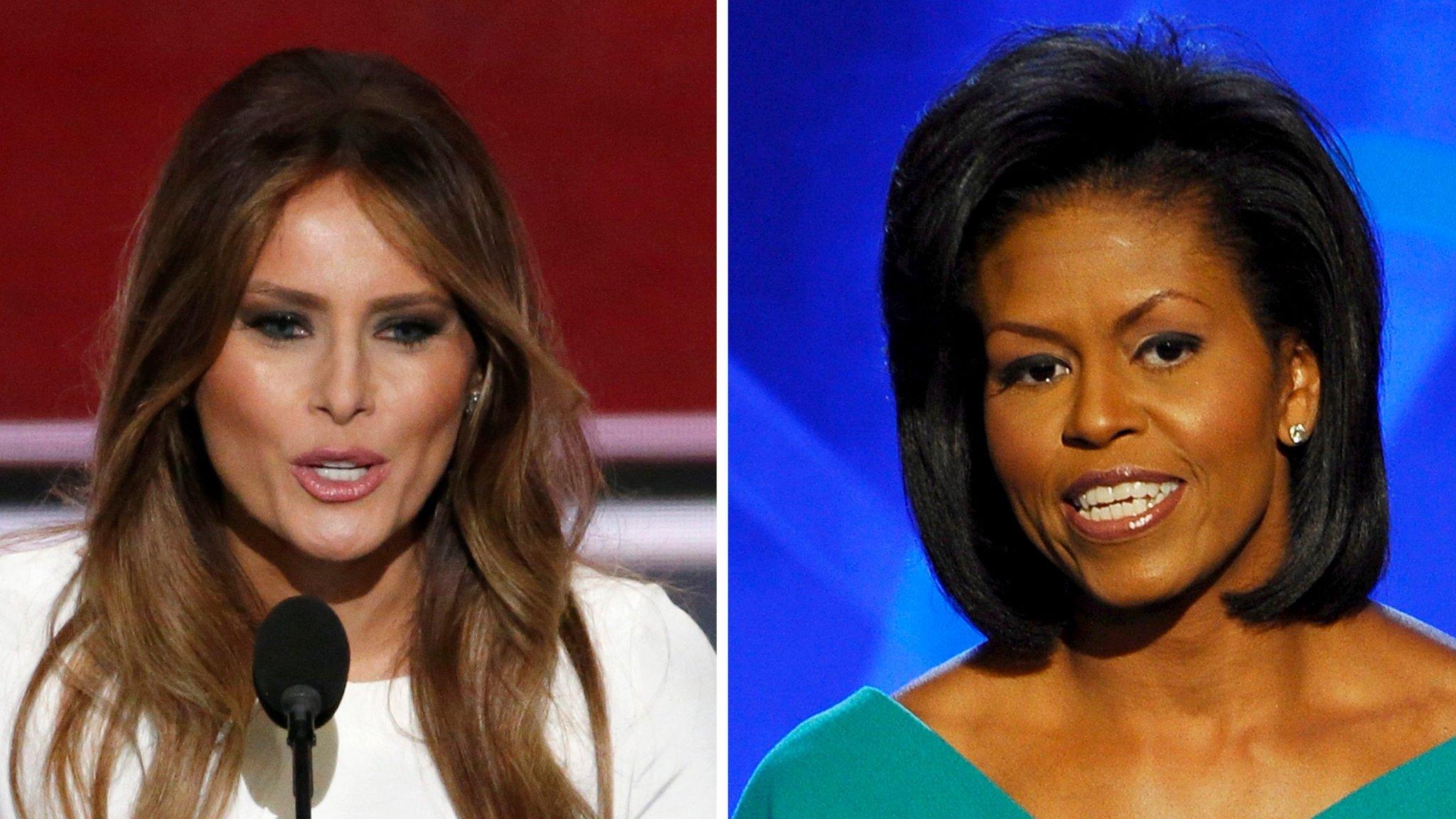Teachers are thanking Melania Trump
- Published
Did Melania Trump's speech copy Michelle Obama's?
Teachers and academics in the UK and the US have taken to Twitter to thank Donald Trump's wife for providing the perfect material to teach their students what plagiarism is and why it is wrong.
Melania Trump's speech at the Republican National Convention has notable similarities with a speech given by current first lady Michelle Obama in 2008.
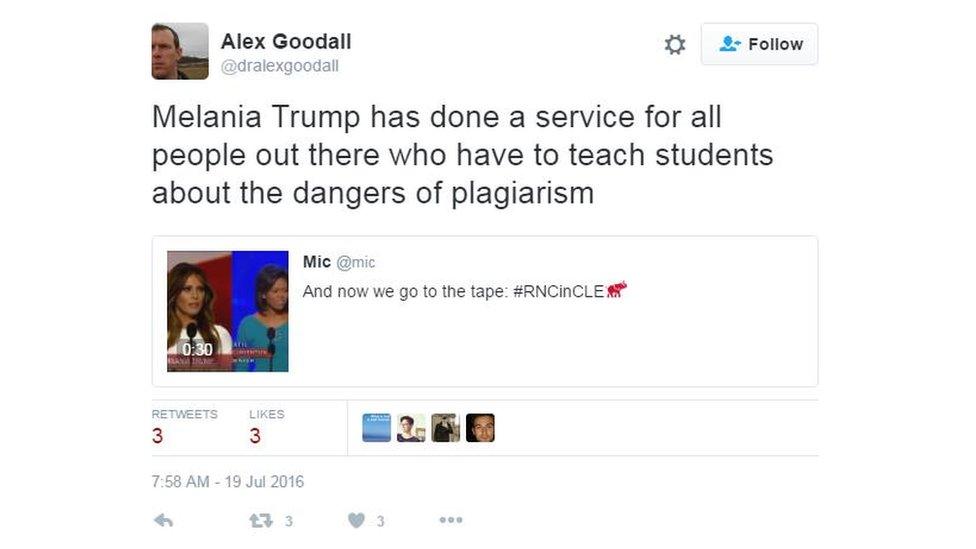
But Mr Trump's team said Mrs Trump used "common words" and blamed Hillary Clinton for the row.
"There's no cribbing of Michelle Obama's speech," said Paul Manafort, Mr Trump's campaign manager.
"I mean, this is, once again, an example of when a woman threatens Hillary Clinton, how she seeks out to demean her and take her down,'' he added.
Brad Francis, an English teacher at Davis Middle School in Evanston, Wyoming tweeted that he was "'jazzed" to have a "perfect video to teach my 8th graders students about the dangers of plagiarism".
"Melania's speech is probably the most blatant example that I have ever seen. Eighth grade students need very literal examples, and her speech is basically verbatim to Michelle Obama's. It will help them learn absolutely what not to do in their writing," he told BBC News.
"I have students who try to copy and paste material from the internet all the time to pass it off as their own. That speech was Michelle Obama's intellectual property."
Other teachers expressed similar thoughts:


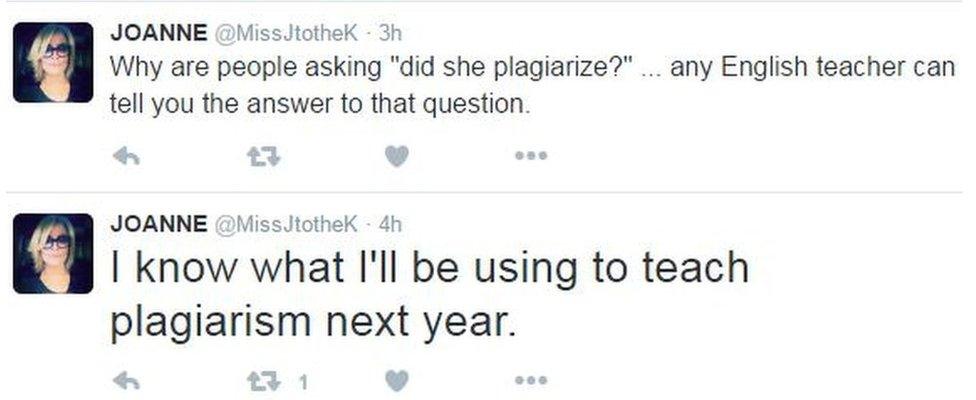

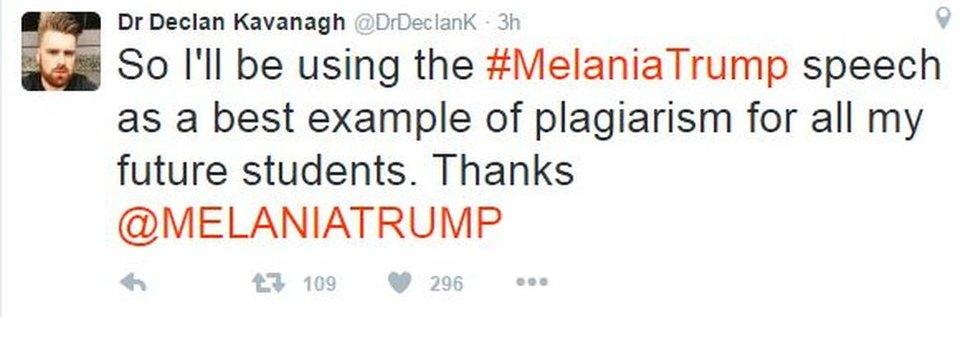
Dr Declan Kavanagh, Director of the Centre for Gender, Sexuality & Writing at the University of Kent, thanked Melania earlier this morning. We asked why he thought it illustrated the perils of plagiarism so well:
"It completely undercut everything else she was saying and it means people don't trust or believe her words."
"The proper thing to do would have been to reference Michelle's speech and build upon it, but plagiarising is very embarrassing."
"Part of academic practice is referencing. Students are encouraged to use other people's ideas but to then reference them and interrogate them."
"It would have been fine for Melania to reference Michelle's speech and advance on her ideas. "
"But if you pass other sources off as your own you come across as robotic. You don't want to come across as a ventriloquist's dummy for other people's ideas."
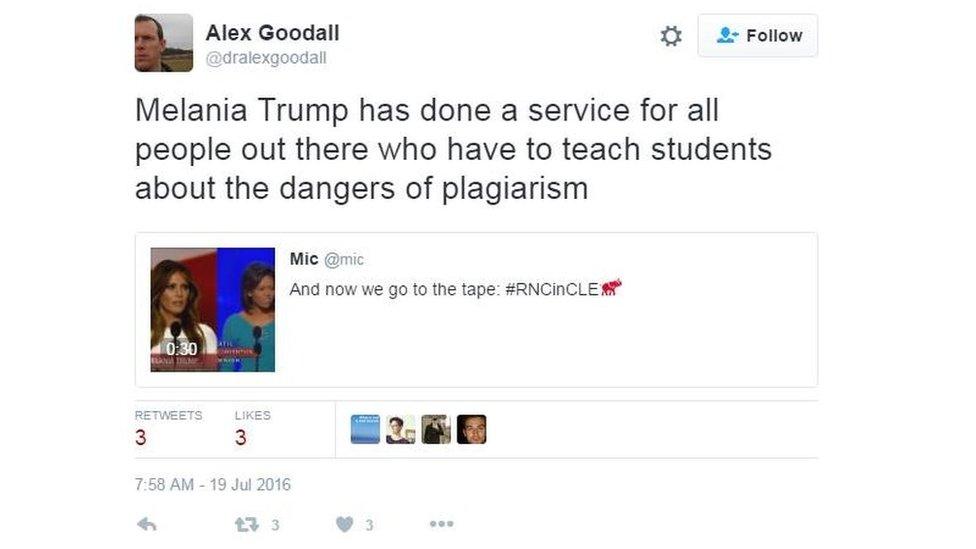
Dr Alex Goodall, Chair of the Board of Examiners in UCL's History department, said Melania Trump " has done a service for all people out there who have to teach students about the dangers of plagiarism".
"This is a fantastic 'teachable moment'. Students at university normally get caught up in academic misconduct procedures because they don't properly understand what plagiarism is.
"Melania's speech offers us a graphic example of plagiarism in action, from the highest levels of American politics.
"Melania has responded by saying that her speech came from 'fragments that reflected her own thinking' which made it a success.
"In today's cut-and-paste digital culture, students often struggle to distinguish between citing other peoples words when they agree with them, and passing those words off as their own.
"This case offers an intuitive demonstration of the difference. "
"Plagiarism is typically the result of stupid decisions made under intense time pressures. Writing a speech for the Republican National Convention puts a bog-standard undergraduate 'essay crisis' somewhat into the shade, but I wouldn't be surprised if the choices taken by Melania's speechwriters were not all that dissimilar to those of a panic-stricken undergrad."
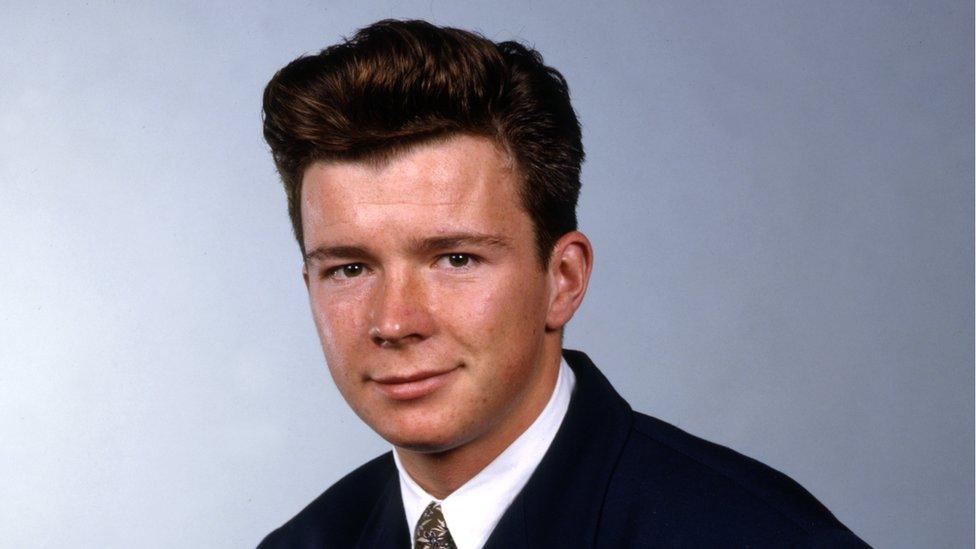
Rick rolled?
Finally, there's been some comment that Melania's speech may have also copied from another famous figure:
"He will never ever give up, and most importantly he will never ever let you down"
No prizes for guessing who that's from, external
Compiled by Patrick Evans, BBC UGC and Social News team
- Published19 July 2016
